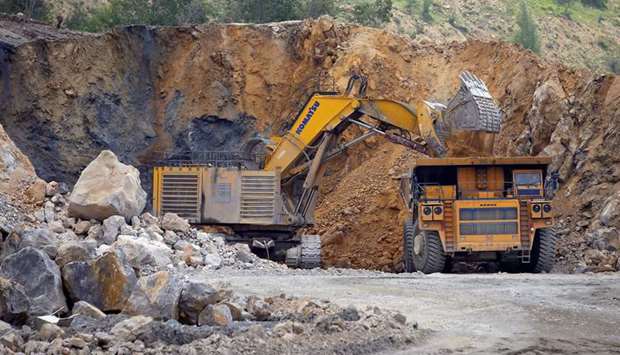* Philippines is one of world's top nickel, copper, gold producers
* Government seeks to boost state revenues with new mines
* State to renegotiate contracts for better terms
* Moratorium in place ahead of legislation to boost state returns
Philippine President Rodrigo Duterte has lifted a moratorium on new mineral agreements imposed in 2012, reopening the door to fresh mining investments as he seeks to boost state revenues to fund infrastructure projects and other initiatives.
Duterte has issued an executive order that allows the government to enter into agreements for new mining projects and undertake a review of existing mining contracts and agreements for possible renegotiation of the terms.
The moratorium had been imposed while the government worked on legislation to boost the state's share of mining revenues in one of the world's top producers of nickel, copper and gold.
Under a tax reform law that took effect in 2018, the excise tax on minerals, mineral products and quarry resources has been doubled to 4%.
The executive order, made public by the presidential palace on Thursday but signed a day earlier, directs the Department of Environment and Natural Resources to formulate the terms and conditions in the new mineral agreements in order to maximise government revenues.
The department, however, is also tasked with strictly implementing rules on mine safety and environmental policies with the lifting of the ban.
The resources-rich Southeast Asian country is currently the biggest supplier of nickel ore to top metals consumer China, though less than 5% of its reserves of all minerals are estimated to have been extracted so far.
Mining is a highly contentious issue in the Philippines after past cases of environmental mismanagement have fuelled a strong lobby against the industry led by local governments, legislators, advocacy groups and the Catholic church.
Duterte, who had shortly after coming to office in 2016 warned miners to follow tighter environmental rules or be shut down, has upheld a ban on new open pit mines, despite a push by senior officials to soften the policy.

